Fuuuuck That Is My Circus. Are Those…? Yep… Those Are My Monkeys….. Goddammit.
fuuuuck that is my circus. are those…? yep… those are my monkeys….. goddammit.
More Posts from Timetobetraumatised and Others
waking up at 5 am to see that yep, Sifo-Dyas is mentioned on the character list in the Living Force, but all I can think about is that his last transmission to the Temple (his confession about the clones, his last words) has been hanging out in canon from a YA novel that came out in 2019 and I didn't know until last night (Thank you @dapurinthos for letting me know about this and for my resulting emotional breakdown)
"Come find me!" 😭😭😭😭😭
how to start reading again
from someone who was a voracious reader until high school and is now getting back into it in her twenties.
start with an old favourite. even though it felt a little silly, i re-read the harry potter series one christmas and it wiped away my worry that i wasn't capable of reading anymore. they are long books, but i was still able to get completely immersed and to read just as fast as i had years and years ago.
don't be afraid of "easier" books. before high school i was reading the french existentialists, but when getting back into reading, i picked up lucinda riley and sally rooney. not my favourite authors by far, but easier to read while not being totally terrible. i needed to remind myself that only choosing classics would not make me a better or smarter person. if a book requires a slower pace of reading to be understood, it's easier to just drop it, which is exactly what i wanted to avoid at first.
go for essays and short stories. no need to explain this one: the shorter the whole, the less daunting it is. i definitely avoided all books over 350 pages at first and stuck to essay collections until i suddenly devoured donna tartt's goldfinch.
remember it's okay not to finish. i was one of those people who finished every book they started, but not anymore! if i pick up a book at the library and after a few chapters realise i'd rather not read it, i just return it. (another good reason to use your local library! no money spent on books you might end up disliking.)
analyse — or don't. some people enjoy reading more when they take notes or really stop to think about the contents. for me, at first, it was more important to build the habit of reading, and the thought of analysing what i read felt daunting. once i let go of that expectation, i realised i naturally analyse and process what i read anyway.
read when you would usually use your phone. just as i did when i was a child, i try to read when eating, in the bathroom, on public transport, right before sleeping. i even read when i walk, because that's normally a time i stare at my screen anyway. those few pages you read when you brush your teeth and wait for a friend very quickly stack up.
finish the chapter. if you have time, try to finish the part you're reading before closing the book. usually i find i actually don't want to stop reading once i get to the end of a chapter — and if i do, it feels like a good place to pick up again later.
try different languages. i was quickly approaching a reading slump towards the end of my exchange year, until i realised i had only had access to books in english and that, despite my fluency, i was tired of the language. so as soon as i got back home i started picking up books in my native tongue, which made reading feel much easier and more fun again! after some nine months, i'm starting to read in english again without it feeling like a huge task.
forget what's popular. i thought social media would be a fun way to find interesting books to read, but i quickly grew frustrated after hating every single book i picked up on some influencer's recommendation. it's certainly more time-consuming to find new books on your own, but this way i don't despise every novel i pick up.
remember it isn't about quantity. the online book community's endless posts about reading 150 books each year or 6 books in a single day easily make us feel like we're slow, bad readers, but here's the thing: it does not matter at all how many books you read or what your reading pace is. we all lead different lives, just be proud of yourself for reading at all!
stop stressing about it. we all know why reading is important, and since the pandemic reading has become an even more popular hobby than it was before (which is wonderful!). however, there's no need to force yourself to be "a reader". pick up a book every now and then and keep reading if you enjoy it, but not reading regularly doesn't make you any less of a good person. i find the pressure to become "a person who reads" or to rediscover my inner bookworm only distances me from the very act of reading.
adhd paralysis sucks bcuz im just sitting there and my brain is like
YOU ARE WASTING TIME YOU ARE WASTING TIME YOU ARE WASTING TIME YOU ARE WASTING TIME YOU ARE WASTING TIME YOU ARE WASTING TIME YOU ARE WASTING TIME YOU ARE WASTING TIME YOU ARE WASTING TIME YOU ARE WASTING TIME
no work done no rest gained. literally no point of this at all
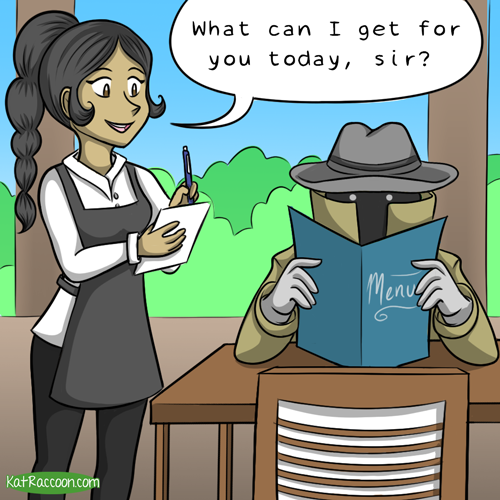
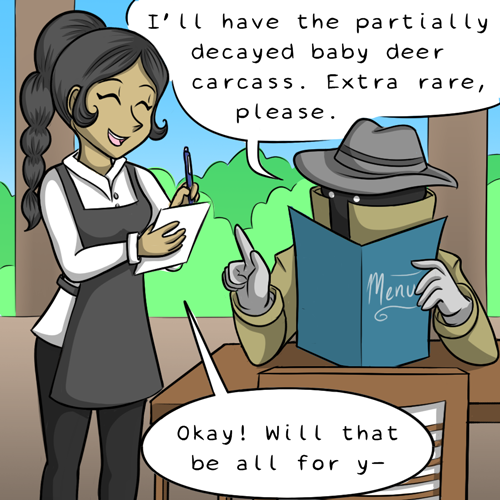
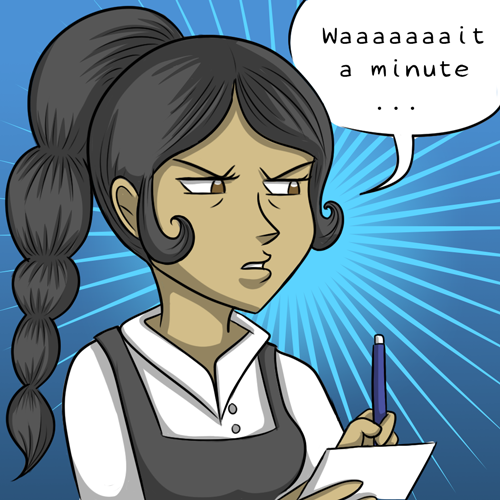
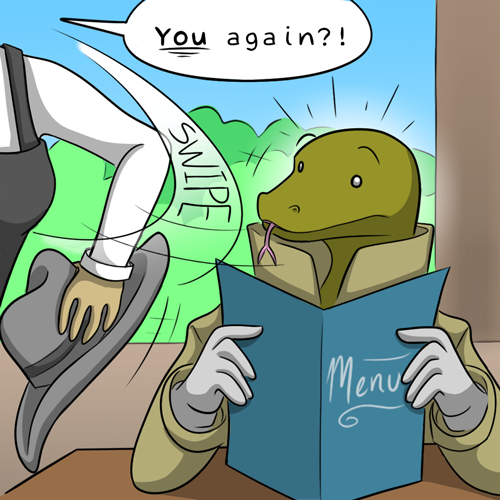
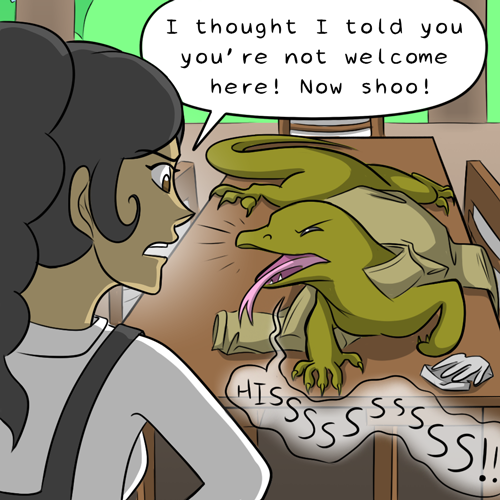
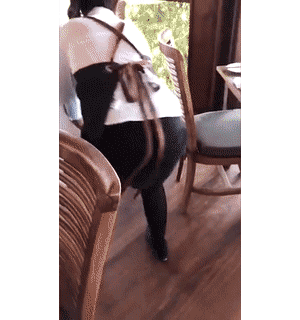
Hanging out with old people rules because after a while they trust you enough to confess to murder totally unprompted

and with your help it can rack up 700k notes on tumblr in 2024
no tumblr this doesnt need tags im releasing it into the wild as god intended
You know, that Mythbusters post legitimately changed my life. Before seeing it, I had exponentially more guilt and stress about not being able to sleep, which of course, further exacerbated my inability to sleep.
Now, every time I wake up about three am, knowing I have to get up at 6.45, instead of stressing and panicking about how my day is going to be sleep deprived and miserable, I just tell myself 'Time to activate Mythbusters Protocol' and lie there with my eyes closed safe in the knowledge that I am measurably reducing later feelings of exhaustion.
And when this happens, about 70% of the time the reduction of guilt and stress means I actually do fall back asleep, so all in all instead of getting only three or four hours sleep, I get five to six and a half.
Which y'know, major improvement in health and energy.
When a person with ADHD complains of severe anxiety, I recommend that the clinician not immediately accept the patient’s label for her emotional experience. A clinician should say, “Tell me more about your baseless, apprehensive fear,” which is the definition of anxiety. More times than not, a person with ADHD hyperarousal will give a quizzical look and respond, “I never said I was afraid.” If the patient can drop the label long enough to describe what the feeling is like, a clinician will likely hear, “I am always tense; I can’t relax enough to sit and watch a movie or TV program. I always feel like I have to go do something.” The patients are describing the inner experience of hyperactivity when it is not being expressed physically.
At the same time, people with ADHD also have fears that are based on real events in their lives. People with ADHD nervous systems are consistently inconsistent. The person is never sure that her abilities and intellect will show up when they are needed. Not being able to measure up at the job or at school, or in social circles is humiliating. It is understandable that people with ADHD live with persistent fear. These fears are real, so they do not indicate an anxiety disorder.
holy SHIT
95% sure someone's said something like this before but we need different words for hate the way the Greeks had different words for love. Like one for annoying people you see regularly, one for someone you used to love but are now bitter towards, one for famous people you think deserve to fall out of favor with the public, one for institutional harm, etc.


Hi. I haven't posted anything at all for a long time, but now I have something for you. I'm sorry, I feel so bad... I don't have the strength to move on, but I will share this surge of feelings on an electronic canvas with you. Take care of yourself.
-
 aylinhadtimeforthis liked this · 2 months ago
aylinhadtimeforthis liked this · 2 months ago -
 sillysaladsuit liked this · 2 months ago
sillysaladsuit liked this · 2 months ago -
 sleeping-jayy liked this · 2 months ago
sleeping-jayy liked this · 2 months ago -
 idle-brit reblogged this · 2 months ago
idle-brit reblogged this · 2 months ago -
 idle-brit liked this · 2 months ago
idle-brit liked this · 2 months ago -
 scrubglleycrubg liked this · 2 months ago
scrubglleycrubg liked this · 2 months ago -
 carcharian reblogged this · 2 months ago
carcharian reblogged this · 2 months ago -
 sysipheheureuse liked this · 2 months ago
sysipheheureuse liked this · 2 months ago -
 jewish-blackula liked this · 2 months ago
jewish-blackula liked this · 2 months ago -
 cakepursuedbyabear liked this · 2 months ago
cakepursuedbyabear liked this · 2 months ago -
 000yul reblogged this · 2 months ago
000yul reblogged this · 2 months ago -
 inkyarachne reblogged this · 2 months ago
inkyarachne reblogged this · 2 months ago -
 humble-butter reblogged this · 2 months ago
humble-butter reblogged this · 2 months ago -
 penguinofbi reblogged this · 2 months ago
penguinofbi reblogged this · 2 months ago -
 askthe7 reblogged this · 2 months ago
askthe7 reblogged this · 2 months ago -
 torito4-20 liked this · 2 months ago
torito4-20 liked this · 2 months ago -
 pathos-logical reblogged this · 2 months ago
pathos-logical reblogged this · 2 months ago -
 chaoticwritingkirbybakery reblogged this · 2 months ago
chaoticwritingkirbybakery reblogged this · 2 months ago -
 queervampirenerd reblogged this · 2 months ago
queervampirenerd reblogged this · 2 months ago -
 foxfootunderscore liked this · 2 months ago
foxfootunderscore liked this · 2 months ago -
 seasofgalaxies reblogged this · 2 months ago
seasofgalaxies reblogged this · 2 months ago -
 seasofgalaxies liked this · 2 months ago
seasofgalaxies liked this · 2 months ago -
 bittersweetrobin liked this · 2 months ago
bittersweetrobin liked this · 2 months ago -
 otonapocky liked this · 2 months ago
otonapocky liked this · 2 months ago -
 starartist13 reblogged this · 2 months ago
starartist13 reblogged this · 2 months ago -
 rottingsoftly liked this · 2 months ago
rottingsoftly liked this · 2 months ago -
 yuridickgirl liked this · 2 months ago
yuridickgirl liked this · 2 months ago -
 somanyfandomssolittletime liked this · 2 months ago
somanyfandomssolittletime liked this · 2 months ago -
 reconstruct reblogged this · 2 months ago
reconstruct reblogged this · 2 months ago -
 blueswonderland liked this · 2 months ago
blueswonderland liked this · 2 months ago -
 lilm31 reblogged this · 2 months ago
lilm31 reblogged this · 2 months ago -
 capadipdap reblogged this · 2 months ago
capadipdap reblogged this · 2 months ago -
 theninjacarrot reblogged this · 2 months ago
theninjacarrot reblogged this · 2 months ago -
 sokolove reblogged this · 2 months ago
sokolove reblogged this · 2 months ago -
 umberandmochaagate reblogged this · 2 months ago
umberandmochaagate reblogged this · 2 months ago -
 macabre-mirth reblogged this · 2 months ago
macabre-mirth reblogged this · 2 months ago -
 macabre-mirth liked this · 2 months ago
macabre-mirth liked this · 2 months ago -
 didyoutrywumbo reblogged this · 2 months ago
didyoutrywumbo reblogged this · 2 months ago -
 love-chiyah26 liked this · 2 months ago
love-chiyah26 liked this · 2 months ago -
 whatsaudreythinkingabout liked this · 2 months ago
whatsaudreythinkingabout liked this · 2 months ago -
 moon-eye-girl liked this · 2 months ago
moon-eye-girl liked this · 2 months ago -
 blissfully--miserable reblogged this · 2 months ago
blissfully--miserable reblogged this · 2 months ago -
 alliefonso liked this · 2 months ago
alliefonso liked this · 2 months ago -
 mooblesandsoups liked this · 2 months ago
mooblesandsoups liked this · 2 months ago -
 theot5inourstars reblogged this · 2 months ago
theot5inourstars reblogged this · 2 months ago -
 the-goddess-rania reblogged this · 2 months ago
the-goddess-rania reblogged this · 2 months ago -
 the-goddess-rania liked this · 2 months ago
the-goddess-rania liked this · 2 months ago -
 theninjacarrot liked this · 2 months ago
theninjacarrot liked this · 2 months ago
